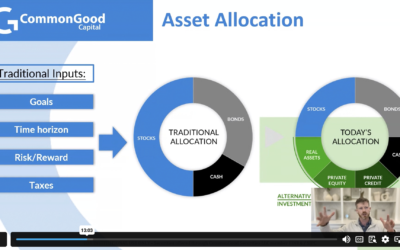Alpha – the enduring, and sometimes nebulous, metric that all investors regardless of sector, stage, or mandate are perpetually chasing. It is arguably the most important standard by which General Partners (GPs) are measured. In light of today’s increasingly ubiquitous commentary about whether passive or active strategies are better suited for the majority of Limited Partners (LPs), the concept of alpha has adopted even more significance.
GPs focused on public markets are constantly searching for ways to gain advantages that will allow them to beat both their competitors and their benchmarks. Some of those advantages would include access to information, analytical abilities, second-level thinking (as Howard Marks discusses here), and even speed.
But what about alpha in the context of private markets investing, such as private equity? Besides the problem of this sector not having a widely adopted, truly comparable benchmark (the S&P 500 is still most commonly used), making the measurement of alpha more difficult, there’s also the question of how private equity investors generate outperformance.
Enter leverage. Beginning in the early 1980s, leveraged buyouts (LBOs) became highly popular due to cheap debt financing and the introduction of “junk bonds.” These transactions, which carry the potential for both high risk and high reward, only work if two conditions are present – either cheap credit or a frothy market, and sometimes both. Because those criteria have been habitually present over most of the last two decades, the private equity industry has, by and large, continued to employ the LBO structure. Unfortunately, it has not always worked out. Between 2015 and 2019, 24% of the businesses that filed for bankruptcy (Chapter 7 or 11) were backed by private equity investors, and between 2005 and 2017, alpha averaged just 1.5%. This begs the question of how the industry will change going forward. Volatility has spiked in recent months, businesses have been forced to shut down due to COVID, and credit, while still cheap, can’t remain so forever. So how will GPs generate alpha in the future?
At CommonGood we believe that playing an active role in portfolio companies is key to outperforming benchmarks. We don’t view ourselves merely as investors, but also partners, ready to help companies navigate the many challenges they face by coming alongside them and helping them grow their business from the inside out. To that end, we’ve recently engaged with two businesses to serve as the acting Chief Financial Officer where we will play a critical role in their financial operations, M&A activity and capitalization. Through this structure, we will help these companies operate more efficiently as they grow, thus enhancing their financial profile and generating alpha for investors.




